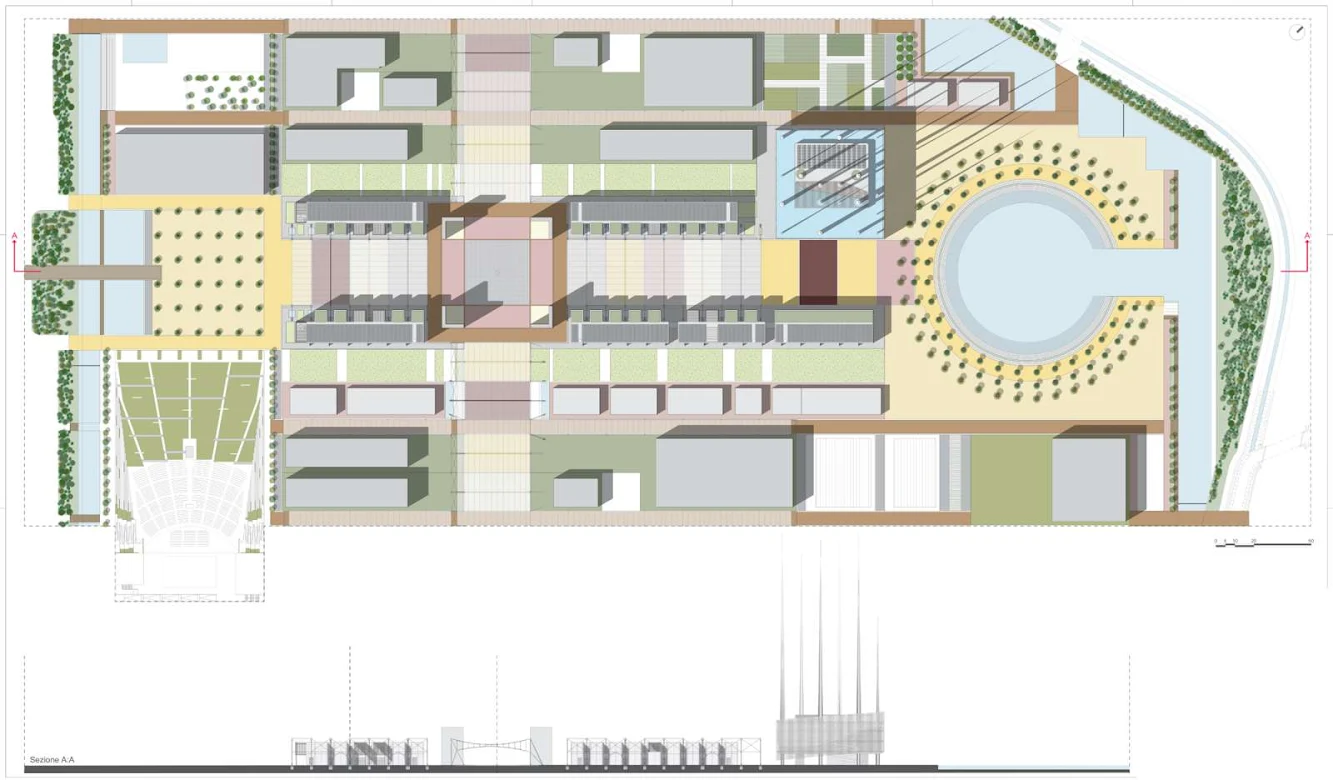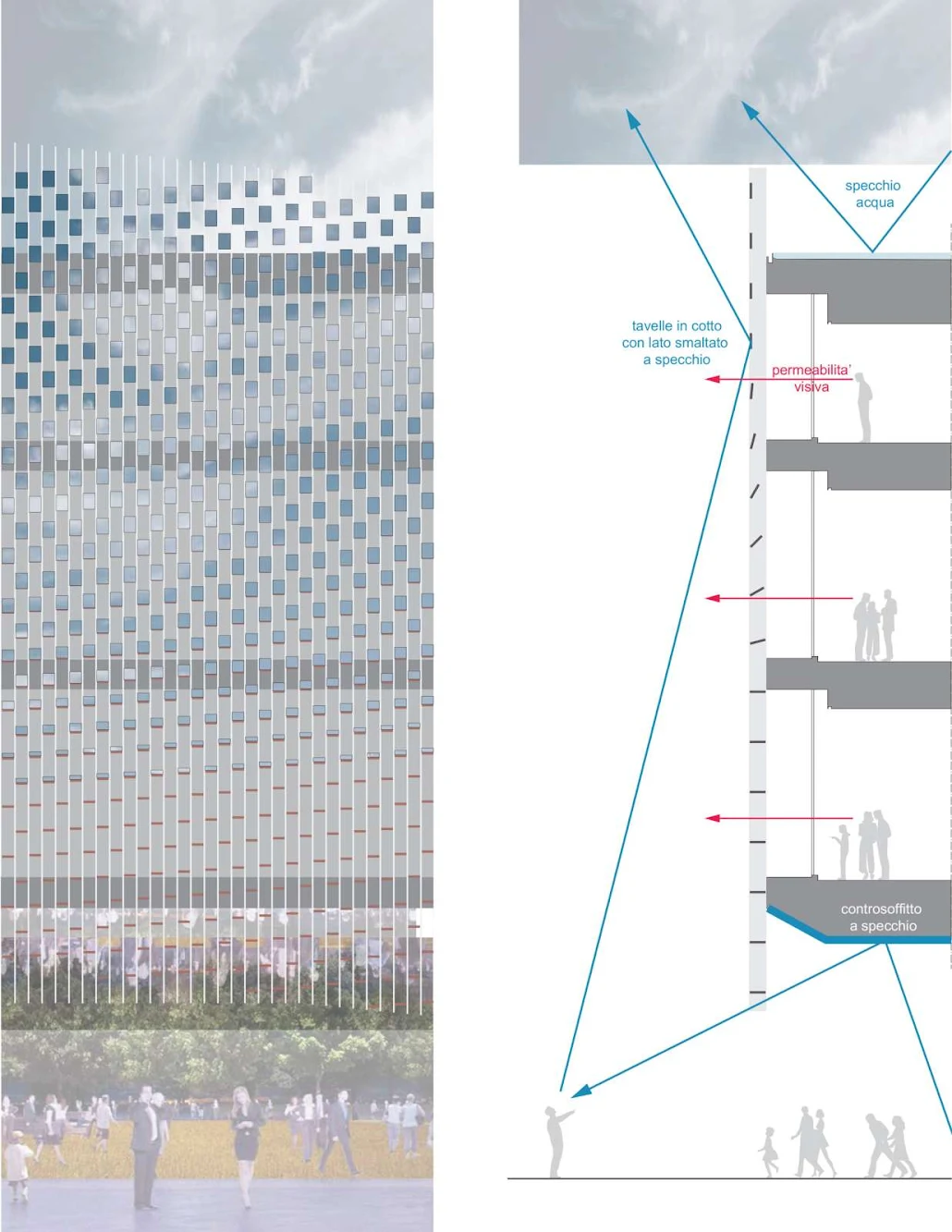The Italian pavilion, as a piece of architecture to represent the host country for the 2015 Expo will convey a far-reaching, energetic and vital image.

As well as being one of the most important works of architecture on the expo site, at the end of the event, will accommodated the so-called cultural "hothouse", a place proposed for the development of creative energy, for the growth of thought and innovative ideas.

The elements that distinguish most clearly the architecture of the pavilion, design by Park Associati, while at the same time expressing a strong representation of Italian culture and Italy itself are the 20 towers / masts (corresponding to the number of Italian regions), constituting both the supporting structure for the pavilion as well as soaring up to create a symbolic element.

The twenty columns/ towers / masts together with the 23-m-high container, have been conceived to proportionally represent in terms of height the actual area of the Italian regions.

These metal masts, cabled inside and made up of sections of a maximum length of 20 m, at the end of the event will be reused as supporting elements for future wind-turbines entering therefore into the principle of recycling in the production process.

We anticipate that the masts in their new role as wind-turbine structures will produce in 3 months the energy consumed by the entire pavilion during the Expo period, bringing into play the parameters of rebalancing energy consumption to then become, after this brief period, producers of surplus energy.

The actual pavilion is a large square container 57.5 x 57.5 m with a height of 23 m to the top slab. the covered and open piazza that is generated at the base of the building is clad in a surface of lenticular film that reproduces a field of grass and this area is particularly flexible and can accommodate events of all kinds.

The accesses to all the functional spaces are differentiated by user type. the building is completely surrounded and enclosed by a glass envelope (triple-glazing, low-emission) with a system of uprights / cross-pieces set back 130 cm with respect to the edge of the slab.

A skin made up of aluminium uprights and extruded terracotta tiles with one side glazed and mirrored with Pvd (Physical Vapour Deposition) treatment gives a particularly bright and vibrant appearance to the elevations of the whole pavilion, as well as screening and protecting the indoor functions from direct sunlight.

The continuity of the construction system and the repetition of the elements (10,000 tiles 30 x 40 x 6 cm and aluminium uprights 44 x 4 cm) is interrupted by a subtle game of rotation of the tiles that alter their position in function of the vertical development of the facade.
